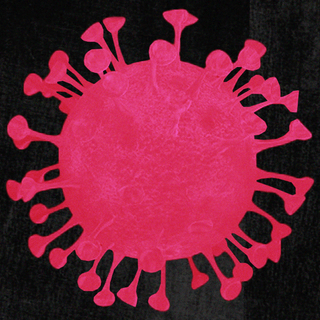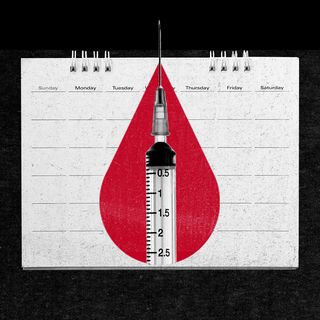
Women’s Sexual Health Ads Were Censored on Facebook, Finds Report
Content focusing on menopause, pelvic pain, pregnancy, and menstrual health was removed for violating “adult product” policies.

Ads related to women’s sexual wellness and menstrual health were reportedly removed from Meta (formerly known as Facebook), with the platform removing them for violating “adult content” policies, according to a new report. The content in question? Breastfeeding, menopause, pelvic pain, postpartum comfort.
The Centre for Intimacy Justice, a group working at the intersection of tech and sexual wellness, in its report looked at 60 women’s health companies who faced ad censorship online. All their ads (100%) were rejected on both Facebook and Instagram over the last three years. Moreover, almost half of these companies had their accounts suspended during this period. Facebook cites its adult products and services ad policy as the reason for declining these ads, the nonprofit’s founder and CEO Jackie Rotman told Marketing Brew. Most flagged ads included words like “vagina” or “vaginal dryness.”
Here’s what the policy notes as mentioned on Facebook’s website: “ads promoting sexual and reproductive health products or services, like contraception and family planning must be targeted to people 18 years or older and must not focus on sexual pleasure.” Ads that are not permitted, for instance, include “buy our sex toys for your adult pleasure”; those permitted are “new moisturizing lube to relieve vaginal dryness on a day-to-day basis” and “practice safe sex with our brand of condoms,” according to Facebook.
There are two accounts where things get unsettling. One, while the ad policies objected to content about women and non-binary individuals’ sexual health, men’s sexual wellness brands that displayed suggestive content remained afloat across all platforms without any punitive action. “Facebook doesn’t seem to be a fan of healthy sex and healthy vaginas,” Jenna Ryan, CEO of a sexual wellness company, said two years ago when Facebook blocked their ads. “I don’t necessarily criminalize them for having a check and balance system, but if they allow condom ads, they should allow ads targeting women’s health.”
Two, the hypocrisy unearths a deeply embedded gender bias problem. As Rotman noted: “The adult policy needs to be revamped entirely. It’s being applied in ways that are discriminatory and hurtful to women and people of diverse genders and other underrepresented groups.”
This is not the first time digital censorship disproportionately impacted gender minorities. Facebook’s ad policies were called out for being biased against women’s health in 2015. On the one hand, had approved custom ads for condoms, lube, and vibrating “massagers.” On the other, itrejected the endorsement of a pelvic floor–strengthening device. “Ads for companies solely focused on sex are OK, but not ads for vaginal health devices made by companies that also make sex products. Ads for condoms are OK, but not when they’re aimed at a population least likely to know about safe sex practices,” Christina Cauterucci argued in Slate. “Facebook argues that its policies make the site a better, more positive place—but for whom?”
Related on The Swaddle:
Other tech giants, like Google and TikTok, also erected barriers in place to limit the outreach or censor representations of gender minorities’ experiences, sexual and non-sexual. Facebook, for instance, started banning images of breastfeeding and nipples as early as 2008 (it later clarified that breasts are ok if a baby is attached in 2012). Google and TikTok also blocked ads for health for people with vulvas, according to the NGO.
“Women’s sexual health is seen as less important, because we’re inundated with messages about men’s sexual wellness being a basic human right, essentially,” Rotman said. “Whereas for women and people of diverse genders, there are disproportionate statistics around who has and who feels entitled to pleasure. I think that bias is seeping into algorithms.”
Daly Barnett, staff technologist, Electronic Frontier Foundation, agrees. “At worst, I would say these larger platforms [are] positioning themselves as paternalistic arbiters of morality.”
The limited visibility impacts women and non-binary founders who are leading these ventures. But the effect permeates down to individuals who remain at a distance from sexual health and wellness information.
“I think it’s important to point out that health information is actually a human right; and that this censorship denies people access,” Jennifer Daw Holloway, communications director at Ipas — a reproductive justice NGO working to expand access to contraception and abortion — told Devex. Arguably, social media remains an arena where NGOs can work to create awareness and sensitize people.
“Now, Facebook won’t let us advertise lubricants, talk about sexual health, or share ‘feminist’ accounts,” Chris Purdy, CEO at DKT, a non-profit working for family planning and HIV prevention noted. In the Philippines, their content focusing on the ineffectiveness of the “pull out” method — a practice in which people having unprotected sex rely on “pulling out” in time as a birth control technique — was removed on social media. Or, anything about emergency contraception was labeled as explicit in Nigeria.
This is not an eye-for-an-eye situation, where the adult content policy should restrict any and all conversation around sexual health and wellness. Instead, the focus should be on finding the rights checks to allow a balance between awareness and protection. In the end, it is a problem that is fixable if acknowledged. “We don’t want Facebook to stop allowing [ads for] ED or other men’s health brands. We simply want to level the playing fields,” Rotman said.
Saumya Kalia is an Associate Editor at The Swaddle. Her journalism and writing explore issues of social justice, digital sub-cultures, media ecosystem, literature, and memory as they cut across socio-cultural periods. You can reach her at @Saumya_Kalia.
Related


Covid19 Vaccine Linked to Only Small Changes in Menstrual Cycles, Shows U.S. Study
